The Biodiesel Confidence Builders

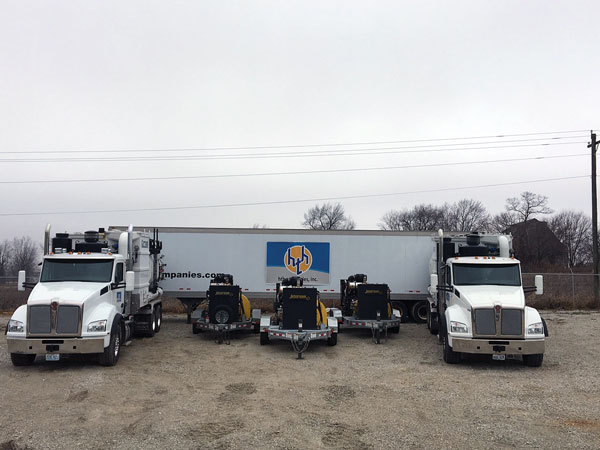
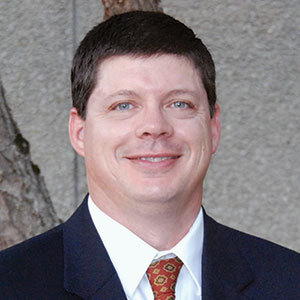
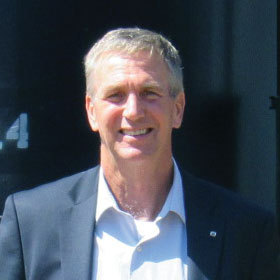
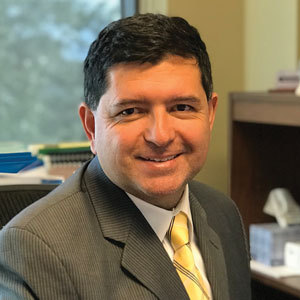
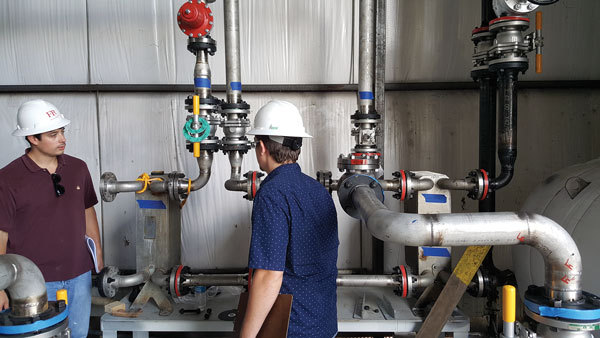
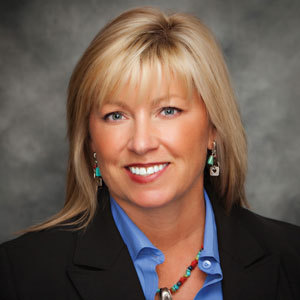
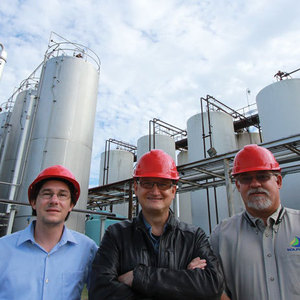
PHOTO: SOLFUELS USA LLC
October 18, 2017
BY Ron Kotrba
Solfuels USA
Solfuels USA appeared on the U.S. biodiesel industry radar last December when two Singapore-based companies, Agritrade Resources Ltd. and Solfuels Holdings Pte Ltd., jointly acquired the 40 MMgy Delta American Fuel plant in Helena, Arkansas, which sat idle for years. The plant was built to process virgin soybean oil into biodiesel. “We are convinced that local biodiesel production capacity in the U.S. remains largely underinvested,” Henri Bardon, CEO, said shortly after the acquisition. “The location of this plant 60 miles south of Memphis, with its multimodal logistical capabilities, makes it an ideal location from which to distribute biodiesel.”
The plant hired Frazier, Barnes & Associates as engineering partner and Process Systems Inc. as construction contractor to retrofit the plant with its proprietary multifeedstock technology to turn yellow grease, rendered animal fats, inedible corn oil and refined vegetable oil into high-quality fuel. Bardon says the retrofit involved adding an additional transesterification reactor and acid wash. The original design included a single reactor and could process only virgin soybean oil with FFA content up to 0.5 percent. “This gives us the option of producing biodiesel from multiple feedstocks up to 5 percent free fatty acid content,” Bardon says.
The retrofit also included installation of an ion exchange system using Lanxess resins to finish the biodiesel. “It’s a regenerative system, so once a quarter we can regenerate our resins with a methanol wash,” Bardon says, adding that the finishing system helps the plant manufacture a superior-quality fuel. “We produce distilled-quality biodiesel without having a distillation column,” he says.
In May, Solfuels USA received its approval from U.S. EPA as a registered biodiesel production facility to participate in the Renewable Fuel Standard and generate RINs. In June, the plant began trial production after the retrofit, and by late September it was shipping its first commercial loads of fuel via truck and rail to oil and gas customers. Also in September, Solfuels USA discharged its first barge of soybean oil at the Griffin River Terminal that services the plant. Bardon says he expects the plant to hit max capacity late this year. “We think by mid-October we should reach 60 percent capacity,” he says.
Bardon adds that Solfuels USA is being audited by Weaver in October for the third quarter and he expects the plant to be Q-RIN-certified by November. And to demonstrate the newly retooled facility’s commitment to quality, Bardon says a full laboratory has been established on-site, and the company is currently engaged in the BQ-9000 certification process. “We should be certified sometime in the first quarter of next year,” Bardon says.
The story of Solfuels USA is a good, representative example of the biodiesel sector as a whole. While producing high-quality, earth-friendly fuel is fundamental to the plot of this story, the subtext of the central theme expands far broader. It’s about investment in the future and providing jobs to the rural economy—16 in Arkansas, in one of the most underprivileged regions of the country, and four in Memphis at the commercial sales office. It showcases the global interest in biodiesel development, and the domestic promise biodiesel delivers.
RINtrust
RINtrust, one of only a few RIN quality assurance plan (QAP) providers registered with U.S. EPA, was spun out of consulting firm Frazier, Barnes & Associates in 2013. “It was a natural service for us to offer,” says Pete Moss, president of FBA and RINtrust. “We know our clients’ plant capabilities and whether they’re in compliance.” Moss says what makes RINtrust special is its connection to FBA. “We have chemical engineers that understand various process technologies, in-depth knowledge of the feedstock, biodiesel and RIN markets, and broad knowledge and expertise in regulations,” he says.
According to Moss, RINtrust’s technical, financial and regulatory prowess provide a critical advantage. “We can spot an error or intentional fraud others might miss,” he says, adding that most fraud in the biodiesel industry was blatant and large scale. “In one prominent case in Indiana, it took us less than two weeks to determine they were breaking the law,” Moss says. “We were engaged for technical due diligence, but because we understand all aspects of the plant, we figured out quickly they were committing fraud.”
When the Q-RIN program was finalized, it more closely resembled the interim B-RIN platform previously in effect, placing primary responsibility for RIN validity on biodiesel plants and obligated parties, not the QAP provider. “However,” Moss says, “QAP providers have the responsibility to ensure generated RINs are valid, so it’s a very good approach. Everyone shares responsibility. Obviously, QAP providers take this seriously.”
Moss says RINtrust’s program is simple, straightforward and meets Q-RIN guidelines. “We look at it from a mass-balance standpoint, requiring documentation to ensure the plant is doing things properly,” he says. Much like the smaller producer-clients it serves, RINtrust is not the biggest QAP provider out there. “We have fewer clients than the others,” Moss says. “But we take a methodical and measured approach. We’ve been in since the beginning helping small- and medium-sized biodiesel producers stay in compliance and make the market more liquid. We’re okay with not being the biggest. We just want to make sure the marketplace has options—and we think we’re a good one. The industry is better with liquidity and choices.”
Clean Energy Consultants
Formed in 2017, Clean Energy Consultants is a new company, but its owner, professional engineer Ernie Pollitzer, is anything but new to biodiesel. Pollitzer performed his first RFS engineering review in 2010 and completed nearly 200 more since. “I’ve worked at more than 100 biodiesel, 30 ethanol, more than a dozen biogas and a handful of renewable diesel plants,” Pollitzer says.
An engineering review is required for initial registration with U.S. EPA. “This is the most critical, and I work closely and diligently with facility personnel to get this done as soon as possible to maximize RIN credits,” Pollitzer says. Subsequent reviews are required every three years. “The selection of a qualified engineer is critical,” Pollitzer says. Delays could cost more than any engineering review price difference, he says.
Clean Energy Consultants also performs California LCFS registration—a complicated process. “While CARB has look-up tables for some pathways, most producers can demonstrate a lower carbon intensity (CI) number for their facility,” Pollitzer says. “Even a couple of points can be huge, especially as credit prices continue to rise.” Pollitzer provides modeling work to demonstrate lower CI numbers and preliminary modeling for economic analysis.
Specializing in biodiesel plant optimization, Pollitzer considers himself a partner with the producer. “I tend to work with medium to smaller plants,” he says. “One area where most facilities could improve is on the backend.”
Clean Energy Consultants completes the circle by working with fleet operators, distribution centers and municipalities to incorporate biodiesel into operations. “We set up a B20 fueling system at their facility,” Pollitzer says. “What really gets me jazzed is connecting an end-user with a local biodiesel producer.”
With more than 30 years of environmental consulting experience, Pollitzer says he finds biodiesel the most interesting field to work in. “It’s had tremendous growth,” he says, “and yet it’s not even come close to realizing its full potential.”
Agribusiness Consulting
Informa Agribusiness Consulting is part of an integrated consultancy practice of the Agribusiness Intelligence vertical, integrating research and consulting units of several brands with a long history in the global food and agriculture supply chain—from seed to market. “Within that, renewable fuels like biodiesel is one segment that has become more important for us over the years,” says Juan Sacoto, senior vice president. “Demand for services is heavy in renewable fuels.” The firm has highly specialized teams on the ground in North America, South America and Europe. “All three teams coordinate information,” Sacoto says.
With 125 analysts in specific, individualized teams stationed around the world, Agribusiness Consulting is a powerhouse of information with a plethora of historical and forecast reports, databases and relationships. “We know the feedstock markets very well,” Sacoto says. “We have internal models, historical data, forward views. We have publications, we do price discovery, and we have that transparency and link to the feedstock manufacturers—whether they are vegetable oil producers or renderers. Big, medium or small, our analysts are talking to them. We tap into a lot of knowledge in our shop. What I do is bring these things together and give perspective.”
Sacoto, who’s been with Informa for 20 years, says Agribusiness Consulting’s understanding of the feedstock markets is more than half the reason people come to the firm in recent years. “We work with biofuel producers, but historically it’s been on the feedstock side,” he says. “The bigger companies know the biodiesel market, and they know the linchpin is feedstock. The other is RIN pricing and markets. We provide information and perspective on these.”
Sacoto says projections for clients involve a lot of scenario work. “We understand the good, bad and ugly of forecasting,” he says. “We try to give a sense of direction and proportion.”
Agribusiness Consulting works with companies in every stage of the biodiesel chain, including logistics. “One of our many strengths is that we have an internal logistics team following rail, truck and barge markets very closely,” Sacoto says.
The company wants to grow alongside the biodiesel industry. “We would like a larger market share of the midsize and smaller companies in the U.S.” he says. “There is where we can be of service—provide pricing forecasts and general strategy on how to position for the next five years. We have enough years in the business, and we tend to be optimistic or pessimistic based on the individual project. We bring a bit of reality to it.” He says another strength of the company is its impartiality. “We will tell you what we think,” Sacoto says, adding that the investment into biodiesel today is encouraging. “Cargill announced a new plant in Kansas, and others have recently expanded, or will,” Sacoto says. “People are taking the risk and see the future of renewable energy as prosperous. They have a longer view of just what EPA will do this year or next. We see smart capital moving into the sector, and it’s very encouraging.”
hth companies
Founded in 1984 as a mechanical insulation company by owner and CEO Greg Hoberock, hth companies inc. has expanded its services over the years to include industrial cleaning, scaffolding, and even general mechanical work such as pump and valve replacement—not forsaking its original, longstanding service foundation of mechanical insulation. “One thing hth companies prides itself on is our ability to service our customers,” says Mike Freese, president. “We have always focused on being a provider to our customers so they can come to us and expect a solution.” By providing multiple services, hth companies shares resources and provides better coordination to customers. “An example of this is building our own scaffolding around a tank to clean it,” Freese says. “Whether it’s scaffolding, cleaning, insulation or general mechanical services, hth companies wants to provide the customer with options. We have serviced the industrial sector for years in large corn milling plants and in the ethanol industry, and we’ve had success in transferring the skills we’ve obtained from these industries to biodiesel plants.”
Although all plants are different, hth companies provides a wide range of maintenance service lines to an eclectic customer base, including ethanol and biodiesel plants, chemical producers, power plants, public utility treatment facilities, grain processors, hospitals, manufacturing facilities, cement plants and more.
It may be easy for a biodiesel producer to overlook or postpone routine tank or heat exchanger cleaning, but regularly scheduled maintenance ultimately minimizes downtime and can avoid costly damage as a result of neglect. “It’s really simple,” Freese says. “If machinery or equipment isn’t working at optimal levels, there will be some loss of production and likely damage caused to their systems. We want to keep clients’ down time minimized so they can continue to provide their products to their customers.” In addition, Freese says having planned maintenance generally leads to efficient work and good coordination between plants and contractors.
Freese says hth companies’ advantage is the breadth in services it provides; its ability to listen to customers’ needs and provide solutions; the fact that it is a family-owned business whose leaders are accessible; the quality of its employees along with the company’s cross-training programs and commitment to personnel development; and its phenomenal safety record—boasting a .59 experience modification rate (EMR).
“We strive to listen to customers’ needs and provide value-added solutions through our people, dedication to safety and quality,” Freese says. “hth companies’ vision is to be an organization that creates an environment where employees are encouraged to develop their full potential to provide quality work. We strive to recruit and retain individuals that share our values of adaptability, unity, dedication, integrity and ingenuity.” To retain and develop its key asset—its 600 employees spanning 13 states—hth companies developed a rotational development program for new managers, and a craft training program based on hands-on training and know-how.
“We pride ourselves on being involved, knowing our customers, and making sure the product we deliver meets both their expectation and ours,” Freese says.
RINAlliance
Fuel marketers that don’t offer biodiesel are leaving money on the table, says Dawn Carlson, president and CEO of RINAlliance, a firm specializing in providing petroleum jobbers and marketers cost-effective solutions to the complicated regulatory burden of tracking, reporting and managing RIN credits. “RINAlliance provides technical regulatory compliance consulting, and assists clients with unique compliance situations on a regular basis,” says Carlson, whose biodiesel roots run deep.
She manages her family’s farming operation in Iowa, helped found the Iowa Biodiesel Board, and fuels her truck with biodiesel. “Knowing that my family’s soybeans and animal fat are making their way into the fuel stream in the form of homegrown biofuels, and then back into my Ford F350 fuel tank, is satisfying,” Carlson says.
When RFS rules were published nearly a decade ago, Carlson and a former colleague developed a business model and software application to assist blenders with reporting RINs to EPA and performing required attest engagements, or audits, of RIN transactions. “We soon discovered there was a monetary value to the RINs and immediately began trading RIN credits on behalf of the users of our proprietary software application,” she says.
RINAlliance is owned by the nonprofit Petroleum Marketers and Convenience Stores of Iowa, but its presence spans the U.S. “Biodiesel RINs have been a very attractive opportunity for fuel marketers, and that has enabled us to help expand biodiesel marketing nationwide,” Carlson says. “Our clients often come to us looking for sources of biodiesel, so we are very involved in connecting fuel marketers with producers.” RINAlliance clients range from small tank-wagon operations to multistate truck and travel plazas. “Many of the governing board members are clients of RINAlliance,” Carlson says, “and their interests are aligned with the needs of our customers, which means we operate on very low margins to ensure our clients’ success.”
With a staff of varied specialists, RINAlliance offers clients full-service support, from registering with EPA as a blender to submitting quarterly reports, performing attestations, vetting RIN producers, and marketing RIN credits to obligated parties. “Our proprietary web-based software application is customized based on client feedback,” Carlson says, “and it provides a historical record of RIN transactions that EPA’s EMTS system does not.” The service also includes a simple calculator for clients to analyze daily whether it’s better to accept RINs or buy without. “The calculator takes into consideration different state tax incentives on biodiesel and our compliance costs,” she says.
One of the most often overlooked compliance areas Carlson sees is when blenders find themselves as importers or exporters. “Helping them through the process of registering, reporting or retiring RINs is a significant matter, and one that should not be done alone,” she says. “We have a great relationship with EPA staff and can help companies navigate these unfamiliar waters.”
Carlson says it has been a rewarding adventure developing RINAlliance the past 10 years. “To be in a position to expand biofuels’ footprint by helping companies find profitable niches in selling biodiesel has been gratifying.”
Frazier, Barnes & Associates
Engineering and consulting firm Frazier, Barnes & Associates celebrated 20 years of business last year. “I did our first biodiesel feasibility study when the market was 30 MMgy,” says Pete Moss, president, who adds that the company has completed roughly a hundred more since then. “We’ve been at it a long time, and we’ve been very involved in the markets.”
FBA offers a wide variety of technical and market services to the biodiesel industry. In addition to feasibility studies, the firm provides technical and regulatory assistance; RFS registration and engineering reviews; process troubleshooting and plant optimization; and independent engineering services, such as construction management, plant drawings, and piping and instrumentation diagrams (P&ID) using the latest software—AutoCAD 3D.
“We also do a significant number of feedstock studies,” Moss says. “And we orchestrate training programs for biodiesel facilities, so operators and personnel understand their plants from both technical and market standpoints.”
Moss says FBA is routinely hired for its troubleshooting and process optimization capabilities. “We just finished helping a plant develop way to solve the problem of too much soap,” he says. “Once you begin producing soap, it negatively impacts the process and yields. We have three chemical engineers on staff, so with our background knowledge, we can go in independently and offer a low-cost solution to not only cut out the soaps in this case, but also to reduce energy costs significantly. They relied on us to offer outside expertise, and we provided a solution with a quick payback.”
What is different about FBA is “we bring the whole package,” Moss says. “Not just our technical expertise, but our understanding of the feedstock markets as well.” Moss comes from a marketing background in the soybean processing industry. “I’ve been involved in feedstock my entire career, so we bring feedstock, technology, market and regulatory expertise. After two decades, we understand what makes a project work well—and what to avoid. The pitfall factor is important.”
Throughout its history, FBA has worked with small and large biodiesel plants alike. “The biodiesel industry is so unique,” Moss says, “as there are all sizes of plants, so many technologies employed and feedstocks used. There are many ways to make biodiesel. We don’t put boundaries on capacity or technologies we work with. We will work with—and have worked with—every technology and size plant in the industry today.”
Advertisement
Advertisement
Related Stories
Broco Energy on July 17 announced a new partnership with the Massachusetts Port Authority (Massport) to deliver and transition Massport's fuel tanks to renewable diesel across its various facilities.
Shell Aviation, Accenture, and Amex GBT on July 10 announced Avelia is in the process of evolving to an industry solution with independent data hosting and a multi-supplier model helping users access the GHG benefits of SAF.
The U.S EPA on July 17 released data showing more than 1.9 billion RINs were generated under the RFS during June, down 11% when compared to the same month of last year. Total RIN generation for the first half of 2025 reached 11.17 billion.
The U.S. EPA on July 17 published updated small refinery exemption (SRE) data, reporting that six new SRE petitions have been filed under the RFS during the past month. A total of 195 SRE petitions are now pending.
European biodiesel producer Greenergy on July 10 confirmed plans to shut down its biodiesel plant in Immingham, Lincolnshire, U.K. The company temporarily suspended operations at the facility earlier this year.
Upcoming Events










